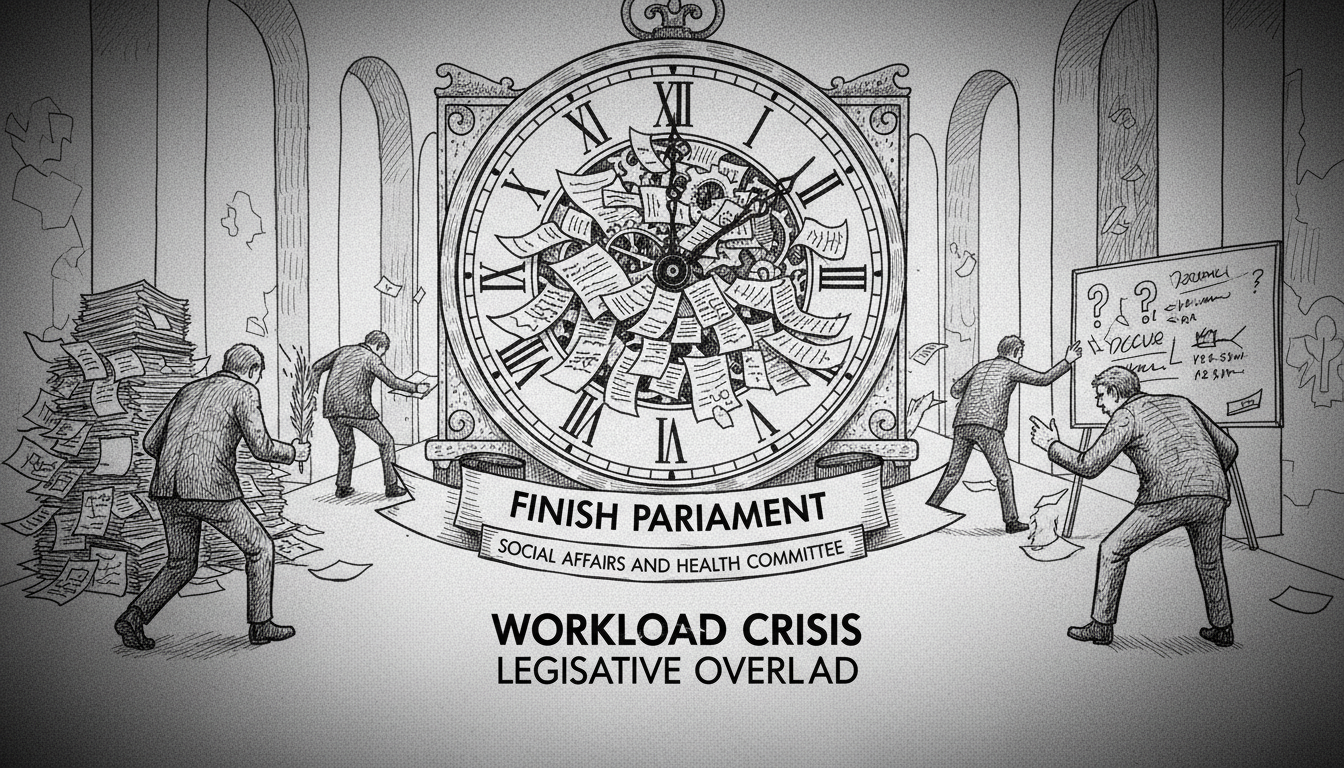A Finnish parliamentary committee faces unprecedented workload pressures as dozens of major legislative proposals overwhelm normal procedures. The Social Affairs and Health Committee confronts what members describe as an impossible timeline to process over 30 government bills covering healthcare reforms, social benefits, and elderly care services.
Committee member Aki Lindén revealed the committee now meets four to five times more frequently than typical parliamentary committees. Members gather every Tuesday through Friday, with additional Monday sessions added recently. Normal meeting hours extend from morning until 2 PM daily as legislators race against deadlines.
Lindén directly attributes the crisis to government timing. The administration submitted extensive legislative packages too late for proper review, he claims. Many proposals require benefit reductions or service cuts in healthcare, disability support, and elderly care. The committee struggles to rewrite poorly drafted legislation while maintaining quality oversight.
The workload imbalance reflects broader political dynamics. Government coalition members dominate the committee with nine representatives, most serving their first parliamentary term. Opposition members bring more experience with only one first-term representative among eight members, including three former ministers.
Committee Chair Krista Kiuru acknowledges the exceptional circumstances. She notes parliament received multiple extensive government proposals without adequate processing time allocated. The workload exceeds last fall's crisis levels when the committee held emergency meetings about working environment issues.
Current pending legislation includes child protection laws, pharmacy regulations, alcohol delivery rules, and disability service reductions. Lindén confirms the committee already removed numerous items from consideration due to time constraints. Different committee reports that other parliamentary groups managed to process won't receive attention here.
The timing creates additional friction. Committee meetings now conflict with parliamentary holiday events, including sessions scheduled during traditional Christmas parties. Lindén questions the logic of scheduling multi-hour meetings with less than a day's notice during previously marked celebration periods.
This situation highlights structural challenges in Finland's legislative process. When governments introduce complex legislation late in sessions, committees face impossible choices between thorough review and timely passage. The current crisis demonstrates how procedural pressures can undermine legislative quality and member wellbeing.
Finnish parliamentary committees typically maintain balanced workloads throughout sessions. The current overload suggests either poor governmental planning or intentional timing to limit scrutiny. Either scenario raises concerns about democratic oversight and legislative quality in critical social policy areas.
What happens next remains uncertain. The committee might extend deadlines, reduce legislative scope, or approve measures with insufficient review. Each option carries consequences for Finland's social services and healthcare systems affecting millions of citizens.

